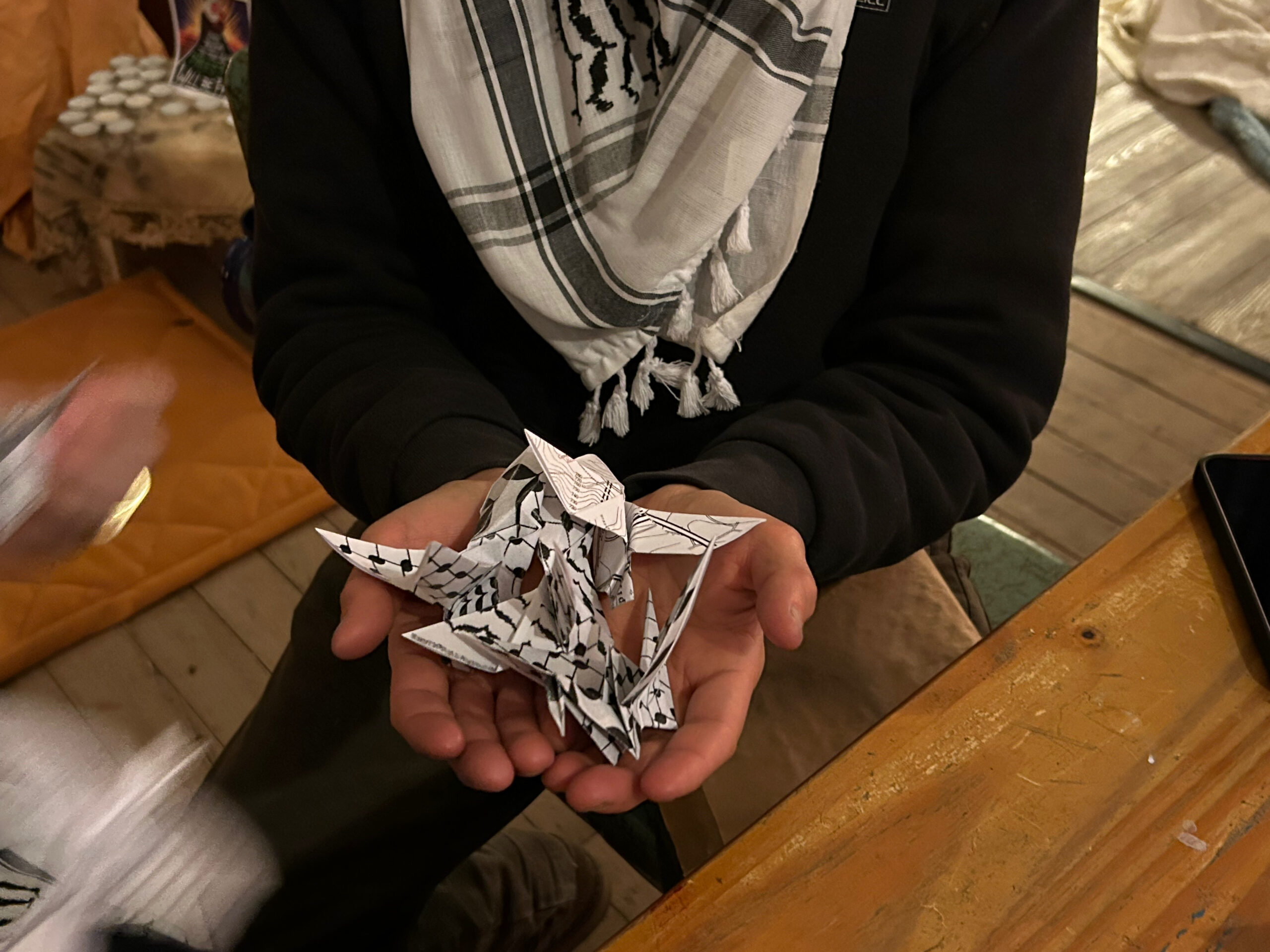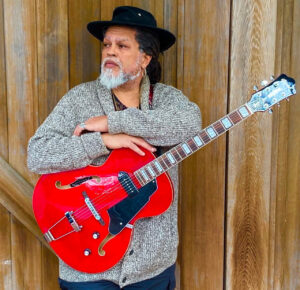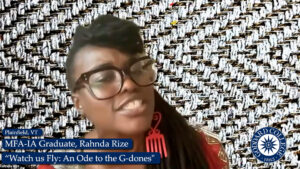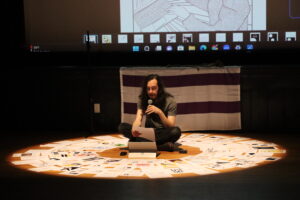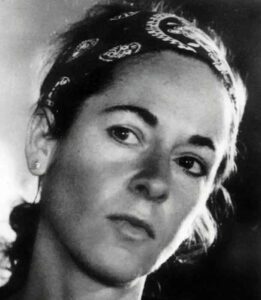
Reuben Radding (MFAIA-VT ’19) in conversation with MFAIA co-Chair Ruth Wallen
Q: How has your creative practice changed or evolved during the pandemic?
RR: Honestly, my process has hardly changed at all. It’s only the world that’s changed. Working during the pandemic has however brought me back to my origins and bolstered my sense of purpose in a huge way.
When I came to Goddard I already had a well-established street photography practice, and the foundation of that work has always been long hours of wandering New York City alone and paying close attention to the life unfolding around me, chasing single images that could be strong enough to stand on their own, without captions, titles, or other spoilers, letting questions remain unanswered in the viewer.
My graduate studies were partially a mission to go beyond street wandering, to expand my practice to all areas of my life, explore new techniques, and to engage with communities outside my usual, well-worn path. The language of what I call “my work” increased. I had a transformative Goddard experience.

Then the shutdown happened in mid-March and I found I had a deep need to witness my city first hand through whatever was going to happen. The first few hours of each day I would be inside reading news and social media and I would feel it insidiously fueling my anxiety and confusion to where I could hardly stand it.
Within an hour of being out on the streets, being present, I would feel that anxiety lift. What I encountered out there was often uncomfortable, or downright scary, but to me it was incredibly centering to witness because it was real. It was an act of self-care more than anything else.

At the same time my commercial work had evaporated overnight, and there was literally nothing else asking for my time. So I just stayed with my own practice, walking between eight and fourteen miles most days, and posting daily sets of images the next morning under the title “Corona Diary.”
I had been feeling a post-MFA fog after my graduation the previous summer, but now I was so charged up to work I didn’t take a single day off for the first six weeks. Sure, I missed crowds and parties, but I felt a renewed gratitude for my practice as a street photographer. The core of my practice was still available to me when so many colleagues of mine were unable to continue their work as they’d known it.
I still had my streets, my feet, a camera, and time. So, the only thing that really changed was the lack of anything else to do, and the pictures themselves changed.

Q: How so?
RR: Over the years my photos had become more complex, packing more action into the frame, and that means getting very close to the people I candidly describe. Suddenly the streets were nearly empty. The few people I did encounter were incredibly wary, (as was I) and hyperconscious of my presence. The usual kinds of photos I’m seeking were unavailable to me. So I challenged myself to accept things as they are, to work with distance and emptiness.
Also, the bewildering uncertainty of the crisis crippled any possible ability to evaluate situations and images, so I just shot everything.
Ironically enough, this was exactly the solution I had been hinting at in my graduate studies: to embrace not-knowing, to reject assumptions of hierarchy, to find new kinds of pictures by suspending my ego and assumptions and to allow unfamiliar forms and feelings into the work.
I wasn’t sure if the photographs were succeeding, but I knew that I wasn’t going to know!

So my lack of mooring ended up making me feel truly free. Good or bad, the pictures were different. And then my audience reacted very strongly to the work. Suddenly my routine way of working had a larger function. Not as a documentary story. Not inhabiting theme, or narrative. Just my subjective response to the world around me and inside me, as before, but in a defined context.
I began self-publishing a series of three photo zines, putting these “Corona Diary” images into a musical arc of notes and tones. They’re very emotional books.
Then the Black Lives Matter movement exploded in the wake of the tragic murder of George Floyd, and I ran towards that. Then the Occupy City Hall encampment happened. Then partial reopening of businesses and other gathering spaces. And the presidential election.
I’ve been there for it all, and my fourth zine of the year, “After The End Of The World,” contains a lot of celebration, though be sure there is also protest, isolation, illness, and conflict, but the evidence of joy––that we can still leap into an ocean, or dance, or take care of each other––are my visual answer to the wordless question of what happens in this tender human culture after the very worst thing occurs.

Q: Can you say something about your approach to teaching photography workshops? How has your approach changed to adapt to the pandemic?
RR: Before I arrived at Goddard and the MFAIA program I knew virtually nothing of progressive education theory, and wasn’t sure if I was going to be interested, but it was a big eureka for me, and it’s now the foundation of how I work, mainly because the aim of my workshops is to facilitate freedom. I want to help students to make their own work that engages their own humanity, their own deeply-held values. That was how I saw the theory put into practice in my graduate studies.
My workshops are intensely collaborative and I use metaphors of musicality and poetics as criteria to evaluate our photos. I look at each photographer as a unique soul with their own important attractions, dreams, and tendencies, and strive to reinforce in them that those forces are not only valid, but truly the best building blocks of personal artistic voice, rather than say, adherence to notions of genre, correctness, markets, or other distractions. I’m looking to highlight the most meaningful human concerns.

I begin every workshop by declaring myself to be a co-learner with the participants, and many of the questions I pose to them are my own as well, the problems I’m trying to unravel in my own work. Because we don’t do the kind of “crit” art schools are infamous for, what develops is a consistently supportive group dynamic. Our lesser pictures are not objects of shame; they generate the most exciting questions and point the way to breakthroughs.
Being online has been a smaller adjustment than I feared. True, when my workshops were still in my Brooklyn studio I could spontaneously reach for a photobook on my shelf to illustrate a point. I do miss that, and the tactile experiences of passing prints around the room as well. (Also the occasional shared snacks!) But really I’ve been amazed at how little I have to change what I do. It’s similar to a Goddard Group Study. And now instead of only working with people who live in NYC or are willing to travel here, I can work with people anywhere.
This year I have had workshop participants in New York, Atlanta, Boston, Texas, Canada, Los Angeles, and the Bay Area, and I have a one-on-one mentee in Southern California as well. It’s been very rewarding.
Otherwise, the biggest change has been that we photographers have all had to find our own personal solutions to the problem of making work in a socially distanced time. Everyone’s situation is different, and despite how inspiring it’s been to see and discuss all these inventive solutions, I look forward to that topic being firmly in the past.

Reuben Radding is a photographer, musician and writer based in New York City whose work has been featured in numerous publications like The New York Times, Rolling Stone, and Hamburger Eyes. He has been exhibited widely at galleries and festivals in North America and Europe. His self-published zines, prints, and online workshops can be found at https://reubenradding.bigcartel.com/
Do you feel the call to the streets? Want to engage your community in a new way as an artist, educator, organizer and force for change? Find your voice, and your passion while joining a community of engaged artists in Goddard’s MFA in Interdisciplinary Art program. Find out more about this unique low-residency program at https://www.goddard.edu/academics/master-fine-arts-interdisciplinary-arts/ or inquire at Get Info

